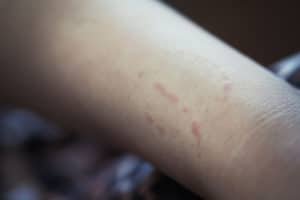The “science” of bite mark evidence has little value.
In movies and on television shows, the police will sometimes be seen turning to dentists or orthodontists to positively match a suspect based on “bite mark” evidence. This may seem like good science, similar to fingerprint evidence or even DNA. Yet identifying people by comparing bite marks is not only bad science, it has the potential to lead to false convictions.
Forensic science is an incredibly critical field of study, and one that has become increasingly important due to what is known as the “CSI” effect. Due to television shows, many jurors now expect that prosecutors should be able to link defendants in criminal cases through forensic evidence, such as DNA and fingerprints. The problem is that such evidence doesn’t always exist — and sometimes, that evidence is actually “junk science.” Unfortunately, according to a criminal defense lawyer Riverside, CA, there are far too many people in California and across the country who are sitting in jail or who may be convicted of a crime due to bad forensic science. That is why it is so vital to hire a highly skilled criminal defense lawyer Riverside, CA.
Bite mark evidence is a prime example of the type of evidence that has a sheen of scientific validity because it is often presented by doctors — but it has no scientific basis. It is often used in cases involving murder, sexual assault and child abuse. Law enforcement will collect bite mark evidence using a variety of techniques, such as photography, dental casts, or computer enhancement. Then they will consult with people who are known as forensic odontologists to determine if a particular person made that bite mark.
The problem, according to a criminal defense lawyer Riverside, CA, is that bite mark comparison does not actually work. The skin is elastic, and is often an uneven surface. Swelling can distort the bite mark, as can the healing process. Beyond that, according to a 2009 report from the National Academy of Sciences, while bite mark companions can rule out suspects, it cannot definitively identify a suspect. It does not compare a specific bite mark to a large pool of anonymous suspects, as with fingerprint analysis; instead, it asks an “expert” to compare a particular bite mark to the bite marks of one or two suspects.
According to the 2009 report, in addition to a lack of scientific validity, bite mark comparison suffers from a major potential for bias. The police are giving odontologists samples from people who are suspects in a case, and rarely use blind comparisons or a second expert. This report was highly critical of bite mark comparison evidence, finding there are no scientific studies to support the assertion that bite marks can positively identify suspects in a criminal case. Further “…in numerous instances, experts diverge widely in the evaluations of the same bite mark evidence, which has led to questioning of the value and scientific objectivity of such evidence.”
These challenges to bite mark evidence has led attorneys for defendants convicted in cases involving bite mark evidence to question their convictions. It also shows how important it is to hire a criminal defense lawyer Riverside, CA who is well-versed in the latest news and updates regarding the use of forensic science in California courtrooms. Your attorney should understand exactly why bite mark evidence is not scientifically valid, and be able to argue for it to be excluded from your case.
If you have been charged with a crime in Riverside or the surrounding areas, the Chambers Law Firm can help. Contact our office today at 714-760-4088 or dchambers@clfca.com to schedule a free initial consultation with a criminal defense lawyer Riverside, CA.





